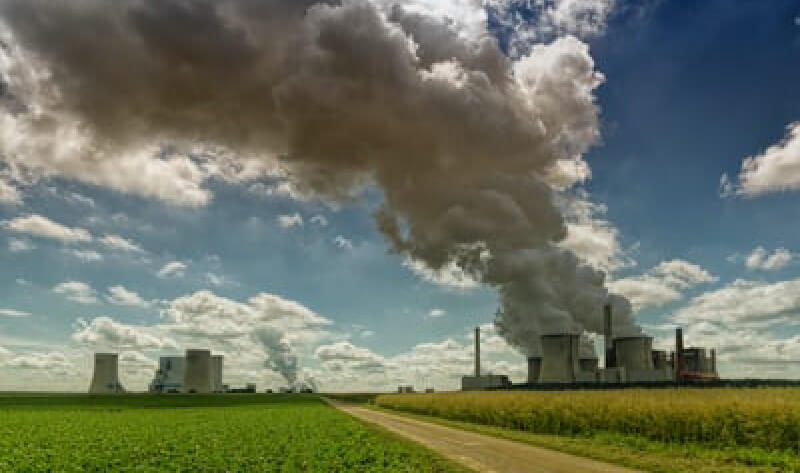Blasphemy laws in nearly half the world’s countries encourage violence to be inflicted on religious minorities, said researchers at a virtual hearing presented by the U.S. Commission on International Religious Freedom.
The hearing on Wednesday announced the release of a new report titled, “Violating Rights: Enforcing the World’s Blasphemy Laws,” which examined the impact of blasphemy laws worldwide. Well-natured politicians in those countries often believe forbidding insults to religion will lead to less violence, researchers said. But in reality, forced conformity creates more oppression.
In many nations with blasphemy laws, mobs attack and kill people who have been accused of blasphemy, said University of California School of Law lecturer Amjad Khan.
“Nations that criminalize blasphemy tend to foster an environment where terrorism is more legitimized, prevalent and insidious. Most notably, nation-states that enforce blasphemy laws are indeed statistically more likely to experience terrorist attacks,” said Khan.
Of the 84 nations with blasphemy laws, 43 do not enforce the blasphemy laws in their legal code. Most blasphemy laws are poorly designed, vaguely worded and have unclear penalties, USCIRF chair Gayle Manchin said to The Christian Post.
“Blasphemy is defined as insulting or showing contempt for God, but of course that pertains to your own beliefs or expression of beliefs,” she said. “Freedom of expression totally invalidates blasphemy laws.”
Even when governments don’t enforce blasphemy laws, they can still threaten religious liberty. Often, mobs violently attack people accused of blasphemy and say they were enforcing the law to escape punishment, said Jocelyn Getgen Kestenbaum, an associate professor of clinical law at Cardozo School of Law.
“There is an issue of mob driven violence at the hands of non-state perpetrators. One hundred and thirty-six incidents of mob violence were reported from 2014 to 2018,” she said. “Sometimes thousands of victims were involved in mob action.”
The hearing included Shaan Taseer, the son of the late Pakistan Gov. Salman Taseer. A bodyguard killed the governor in 2011 because of his plan to reform the country’s strict blasphemy law. Though he was accused of blasphemy, courts posthumously found Taseer’s father innocent of the charge.
Salman Taseer had been accused by hardline groups of committing blasphemy by criticizing Pakistan’s blasphemy law, which is supposed to protect Muslim sentiments, but according to human rights groups is often used to settle personal scores and oppress Christians and other religious minorities.
He was also known for standing up for Christians who were being punished by the country’s blasphemy laws, including Asia Bibi, who was on death row for eight years after being accused of insulting Islam. Bibi was acquitted by a court in 2018 and granted asylum in Canada. She’s been seeking asylum in France since the beginning of this year.
“Being accused of Pakistan is in itself a death sentence with no judge, no jury, straight to the executioner. People are beaten to death, shot on the spot for only an accusation,” Taseer said. “I, too, have been accused of blasphemy and have a fatwa on my head. A mob believes that anyone who kills me will get a ticket to Heaven.”
In Pakistan, people accused of blasphemy tend to come from poor, minority groups and are often illiterate. People almost always get accused by a neighbor after a previous disagreement, and they never get a fair trial, Taseer said. Blasphemy accusations are legal murder.
Surprisingly, countries including Germany, Scotland, Denmark, Canada and Italy still have blasphemy laws, said Manchin. Germany plans to apply its blasphemy law to internet content. In strongly religious countries where authoritarian governments rule, blasphemy laws are the strictest. In Brunei, Pakistan and Iran, blasphemy bears the death penalty.
“In countries that are governed by authoritarians and where there is a majority religion, there infiltrates an idea that everybody needs to believe the same thing. If you don’t, you’re a threat to the majority,” Manchin said. “Countries that have the strictest blasphemy laws also have the greatest extent of mob violence. They’re turning a blind eye and allowing these hate groups to enforce laws they have on the books.”
At the hearing, Sen. James Langford, R-Okla., called attention to a recent congressional resolution against blasphemy laws which he sponsored.
The resolution would make the repeal of other countries’ blasphemy laws a priority for the United States, designate countries with blasphemy laws as countries of particular concern, and oppose the U.N.’s efforts to create international blasphemy norms.
The resolution has already in the House, but Senate leaders are blocking it from getting a vote, he said.
“Many countries don’t want to be able to discuss blasphemy and apostate laws, and they choose to hide these things,” Langford said. “We cannot turn a blind eye to this because it has been exposed.”
From 2014 to 2018, more countries have made new blasphemy laws than have repealed them, Manchin said. In some countries, laws on blasphemy have improved considerably. Iceland, Norway, France, Malta, Denmark, Ireland, Canada, New Zealand, Greece, Scotland and Uzbekistan all removed their blasphemy laws. A key factor in their decisions was pressure from the U.S. to change the laws.
“We have found that what the U.S. thinks of other countries makes a difference. Most countries care what they look like to the rest of the world,” said Manchin. “In many cases, they try to do better. Sudan is a case where they’re winding down and slowly working away from it.”














